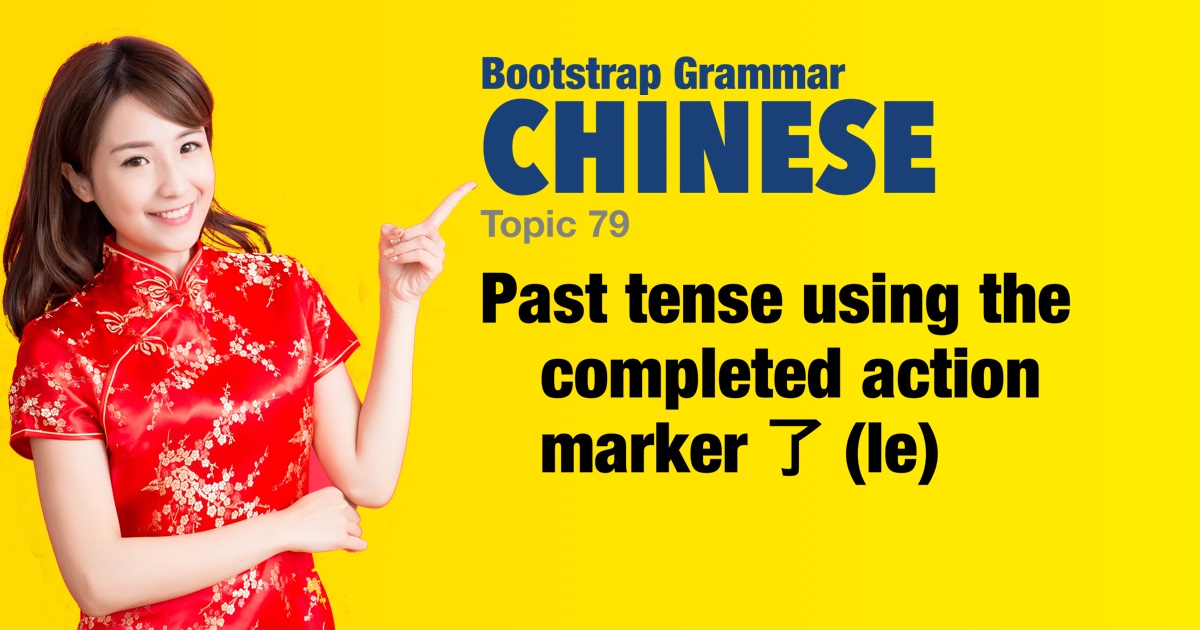Chinese grammar - Past tense using the completed action marker 了 (le) |
|||
|
|||
In Chinese, many verbs can be made past tense by simply appending the 'Completed Action Marker' 了 (le). Note that there are other markers that can be added to further emphasize the completion of a specific action or task. We will see these in later topics. Note also that 了 is not used in the negative - instead, 没有 (méiyǒu) is used. This will be covered in the next topic. |
| Examples: | |
|
他来了。
tā lái le. He came. |
|
|
他出去了。
tā chūqù le. He exited. |
|
|
你长大了。
nǐ zhǎngdà le. You have grown up. |
|
|
灯关了。
dēng guān le. The light is off.
|
|
|
她毕业了。
tā bìyè le. She graduated.
|
|
|
我吃了一块饼干。
wǒ chī le yí kuài bǐnggān. I ate one biscuit.
|
|
|
我在湖里游泳了。
wǒ zài hú lǐ yóuyǒng le. I swam in the lake.
|
|
|
他回家了。
tā huíjiā le. He went home. |
|
|
我洗澡了。
wǒ xízǎo le. I took a bath/shower.
|
|
|
她笑了。
tā xiào le. She laughed.
|
|
|
昨天天气冷了。
zuótiān tiānqì lěng le. Yesterday, the weather was cold.
|
|
|
他们去年结婚了。
tāmen qùnián jiéhūn le. They got married last year.
|
|
|
孩子们睡着了。
háizimen shuìzháo le. The children fell asleep.
|
|
|
我因为很热所以在湖里游泳。
wǒ yīnwèi hěn rè suóyǐ zài hú lǐ yóuyǒng. I swam in the lake because it was very hot. |
|
|
她上个周末去了海滩。
tā shàng#ge#zhōumò qù le hǎitān. She went to the beach last weekend.
|
|
 |
|




